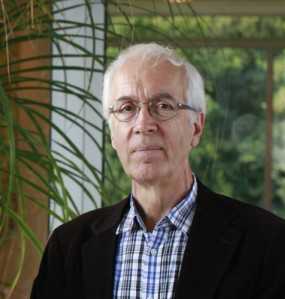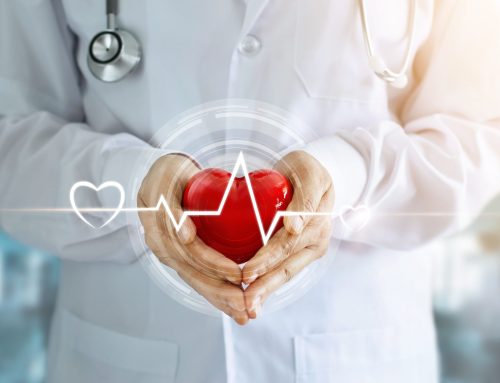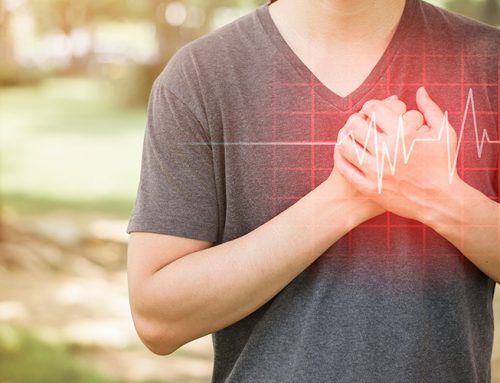
The 2015 conference of the International Coenzyme Q10 Association will be held October 8 – 11, 2015, at the University of Bologna in Bologna, Italy. The university was founded in 1088 and is the oldest university in Europe. Coenzyme Q10 researchers from all over the world will meet in Bologna to present and discuss the latest research results.
Every two years, the leading Coenzyme Q10 researchers meet at a conference hosted by the International Coenzyme Q10 Association. The researchers come together to present and discuss the latest Q10 research results. This year, the conference is being held at the University of Bologna in Bologna, Italy, from Thursday, 8 October 2015, until Sunday, 11 October 2015.
The conference promises to be an exciting one for several reasons.
Dr. Franklin Rosenfeldt
First and foremost, of course, there are the statistically significant positive results from the international multi-center study of the effect of the adjunctive treatment of heart failure patients with 300 mg/day of Coenzyme Q10 in the ubiquinone form. Dr. Franklin Rosenfeldt, Department of Surgery, Monash University, Australia, will review the results from the Q-SYMBIO study.
Presenting the results of the Q-SYMBIO study
The Q-SYMBIO study showed that giving chronic heart failure patients in NYHA classes III and IV a daily ubiquinone Q10 supplement (three times 100 mg per day) in addition to their conventional heart failure medications conferred the following health benefits:
- Fewer major adverse cardiovascular events by 42%
- Fewer hospitalizations by 43%
- Fewer major cardiovascular events by 43%
- Fewer cardiovascular-related deaths by 43%
- Fewer all-cause-related deaths by 42%
No doubt someone in the audience at the conference will raise the question as to whether the results of the Q-SYMBIO would have been even better with if the reduced form of Coenzyme Q10 had been used. I am very eager to hear the responses to this question.
Ubiquinone versus ubiquinol issues at the Q10 conference
I myself doubt that the use of any ubiquinol Q10 product could have improved on the Q-SYMBIO results. I don’t rule the possibility out, but, let’s think about it.
- There is, at present, no ubiquinol product on the market that is as well documented and that is produced to medicinal standards in the way that the ubiquinone Q10 product used in the Q-SYMBIO study was.
- With the ubiquinone Q10 supplementation used in the Q-SYMBIO study, the serum Q10 levels in the treatment group increased significantly by week 16 to approximately 3 times the baseline levels. Supplementation with ubiquinol would not improve significantly on those values.
- Dr. William Judy’s studies show that the best ubiquinone Q10 preparations are absorbed as well or better than the ubiquinol products on the market at present.
- The ubiquinol that is ingested as a supplement is converted to ubiquinone in the stomach and in the small intestine and is absorbed in the form of ubiquinone, begging the question of why we would want to take a ubiquinol supplement instead of a more stable ubiquinone supplement.
- Sometimes the claims for the better absorption of the so-called “water-soluble” ubiquinol products remind me of the claims of Hans Christian Andersen’s emperor who thought that his new clothes were so fine.
Ubiquinone Q10 also used in the Swedish KiSel-10 study
With respect to the ubiquinone versus ubiquinol issues, I hope that the researchers at the International Coenzyme Q10 Association conference will remember that the same ubiquinone Q10 preparation was used in the successful KiSel-10 study in Sweden, showing that a combination of 200 mg/day of Coenzyme Q10 capsules (taken twice daily) and 200 mcg/day of organic selenium yeast tablets over a five-year period resulted in the following positive health outcomes:
- Significantly fewer deaths caused by cardiovascular disease
- Fewer all-cause deaths (although not significantly fewer)
- Significantly better scores on a biological marker of heart disease
- Significantly better echocardiograms
- Significantly fewer hospitalizations
- Significantly better quality of life
Statins and Q10 also on the conference program
At the conference in Bologna, beyond the discussion of the relative merits of ubiquinone Q10 and ubiquinol Q10 preparations, there is sure to be a good discussion of the effects, both positive and negative, of the use of statins, the cholesterol-lowering medication such as Crestor, Levacor, Lipitor, Pravachol, and Zocor, to name some of the prominent statins.
Adverse effects of statins
Yes, these medications do lower cholesterol levels effectively; however, they also cause a number of adverse effects. The US Food and Drug Administration has issued an alert about these adverse effects. More seriously, though, we know that the same biological pathway that is blocked by these statin medications to inhibit the body’s production of cholesterol is the biological pathway that the body uses to produce Coenzyme Q10. Statin medications not only lower cholesterol levels. Statin medications also lower Q10 levels.
Taking statin medication? Please take Q10 too!
It seems imperative that anyone taking a statin medication should be advised about the importance of taking a Coenzyme Q10 supplement as well.
Taking a Coenzyme Q10 supplement, then, is especially important for anyone in the following categories:
- Suffering from heart failure
- Wanting to reduce the risk of developing heart disease
- Taking a statin medication
- Reaching the age of less bio-synthesis of Q10 (anyone 40 years of age or older)
Ubiquinone – ubiquinol scorecard
So, ubiquinone or ubiquinol? Nearly all of the solid research evidence is on the side of the best ubiquinone products, it seems. I never want to say “never,” but, right now, I think about the following discussion points:
- Ubiquinol is more expensive and less stable than ubiquinone
- Absorption is more or less equally good for the best products in each form
- Effect is even more important than absorption, and we have solid studies showing significant effects with a ubiquinone product (we have none with ubiquinol)
- Ubiquinone is available with pharmaceutical grade material and production according to medicine standards
- Ubiquinol in supplements is converted in the stomach and small intestine to ubiquinone (raising the question: what was the purpose of putting the unstable ubiquinol form into the supplement?)
Other Q10 issues on the conference program
And then there are other big issues on the conference program:
- The role of Q10 in cellular bio-energetics
- The role of Q10 in ageing
- The role of Q10 in cell signaling
- The role of Q10 in cardiovascular disease
- The role of Q10 in cell homeostasis
- The role of Q10 in gene regulation and expression
Oh, it will be an exciting conference. The really exciting discussions will be the discussions of the merits of the ubiquinone and ubiquinol forms in the supplements themselves, and, of course, the need for Q10 supplementation for heart failure patients and for patients taking statin medications.

Dr. Svend Aage Mortensen. Please read Dr. Mortensen’s succinct article explaining the biochemical rationale for Q10 supplementation. Mortensen, S. A., & Mortensen, A. L. (2014). The mitochondria in heart failure: a target for coenzyme Q10 therapy? Clinical Pharmacology and Therapeutics, 96(6), 645-647.
Dr. Svend Aage Mortensen, a pre-eminent Q10 researcher
For many people attending the Q10 conference, it will also be a sad occasion because Dr. Svend Aage Mortensen, formerly of the Copenhagen University Hospital, will not be in Bologna to present the results of the Q-SYMBIO study for which he was the lead researcher and lead author. Dr. Mortensen’s contributions over the past many years to our knowledge of the safety and absorption and beneficial effects of Q10 supplementation are unparalleled. Professor Gian-Paolo Littarru will speak at the beginning of the conference about Dr. Mortensen, the man and the cardiologist and the Q10 researcher, who emphasized the biochemical need for supplementation with Coenzyme Q10 in cases of heart failure because it is necessary to correct the Q10 deficiency state that is positively associated with heart failure. Heart failure was, for Dr. Mortensen, at its most basic, caused by the energy starvation of the heart muscle cells that were not getting enough ubiquinone Q10.









Leave A Comment